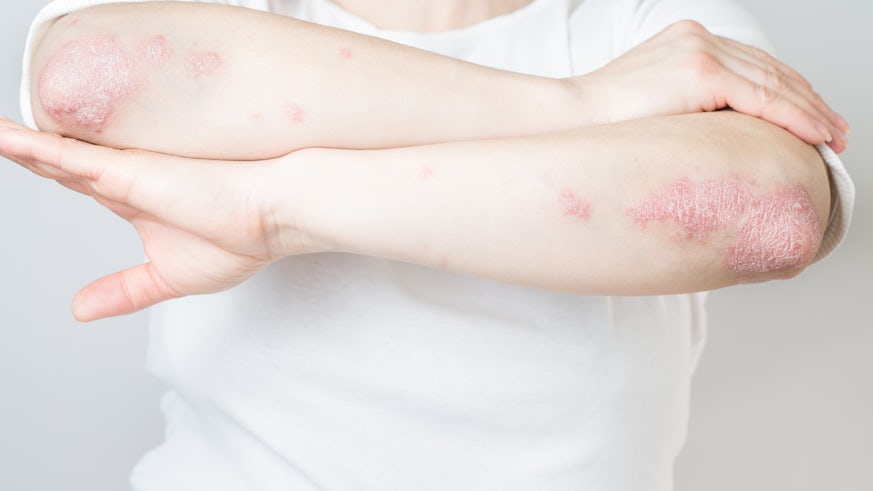Skin lipids found altered in patients with psoriasis
6 October 2021

A set of recently discovered skin lipids have been found to be altered in patients suffering with psoriasis, according to a study led by Dr Chris Thomas at Cardiff University’s School of Pharmacy and Pharmaceutical Sciences.
The research, carried out using mass spectrometry, was highlighted in a recent paper published in the Journal of Lipid Research, and featured this week in American Society for Biochemistry and Molecular Biology Today.
Psorasis is a skin disease which, according to the World Health Organization’s Global Report on Psoriasis (2016), affects at least 100 million people world-wide. It most often develops in adults under the age of 35 and can cause itchy, sore patches of red skin which, for some patients, can severely affect their quality of life.

With no current cure for psoriasis, the possible biomarkers identified through this research could be targeted by more effective treatments in the longer term. Further research will explore the role these lipids play in the progression of psoriasis and in the physiology of skin more broadly
Findings from this study are detailed in the Journal of Lipid Research paper Lipidomic and transcriptional analysis of the Linoleoyl-omega-Hydroxyceramide biosynthetic pathway in human psoriatic lesions